|
Limitar tu búsqueda
[+–] Creator
- Banco de Previsión Social (1)
- Centro Interamericano de Estudios de Seguridad Social (2)
- De la Torre, Rodolfo (3)
- Le Thi, Mai Linh (1)
- López Rodríguez, Patricia (2)
- Negrín, José L. (1)
- Ocampo, Diadelfa (1)
- Sadoulet, Elisabeth (1)
- Siegel, Paul B. (1)
- Soloaga, Isidro (2)
- Vakis, Renos (1)
- de Janvry, Alain (1)
- de la Cruz, Paúl (1)
- de la Fuente, Alejandro (2)
[+–] Editorial
[+–] Fecha
[+–] Formato
[+–] Idioma
[+–] Tipo de documento
[+–] Tipo de recurso
[+–] Classification
|

|
|
Conmemoración del Cuadragésimo Aniversario del CIESS
Evento que convocó a más de trescientos asistentes procedentes, entre otras organizaciones, de los distintos órganos de la CISS e instituciones de seguridad social de diversos países de América afiliadas a ésta, organismos internacionales, universidades y otros centros de enseñanza superior de México, funcionarios del cuerpo diplomático, representantes de Secretarías de Estado, del Instituto...
|
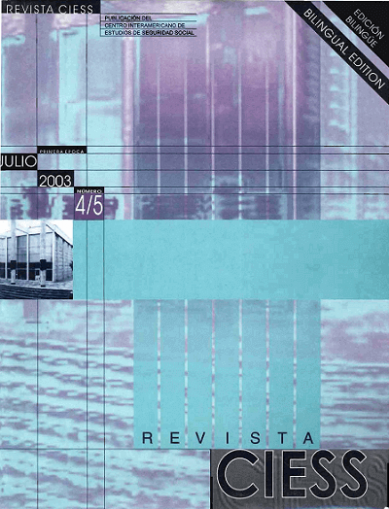
|
|
|
|

|
|
Análisis del sistema previsional uruguayo y de las particularidades de su nuevo régimen mixto
En este estudio, se describen las disfuncionalidades, que en cierta
forma fueron el inicio del camino hacia la reforma previsional llevada a cabo en setiembre de 1995. Analizaremos asimismo las características básicas de tal reforma y sus efectos sobre las variables del sistema más significativas.
In this study, dysfunctionality, that somehow were the beginning of the road to pension reform...
|

|
|
|
|

|
|
El efecto de la percepción de la violencia en el capital social en México
El incremento en la violencia que presenta México con consecuencias en la ruptura del tejido social y en variables económicas clave nos llevan a analizar el efecto del cambio en la percepción de la violencia en el cambio en el capital social –como asociativismo- entre el 2006 y el 2011, periodo en el que se inició la política contra la violencia y el crimen organizado en México (2006-2012). Se...
|
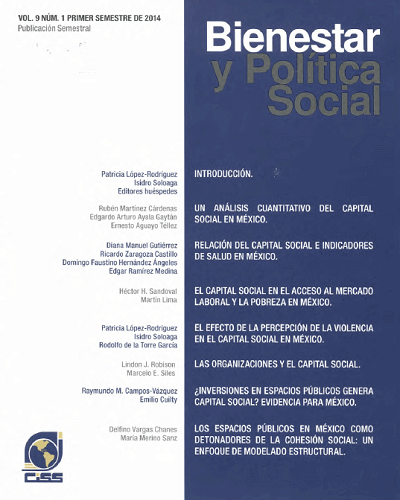
|
|
|
|

|
|
Economic polarisation and gobernality in México
The purpose of this essay is to appraise alternative hypothesis about the origins of recent social revolt in Mexico. It shows that it is not clear that a severe rise in poverty preceded the origins of violent conflict but social polarisation. Therefore, government attempts to deactivate the economic factors that led to social unrest did not necessarily upgrade povertyreduction policies. The...
|
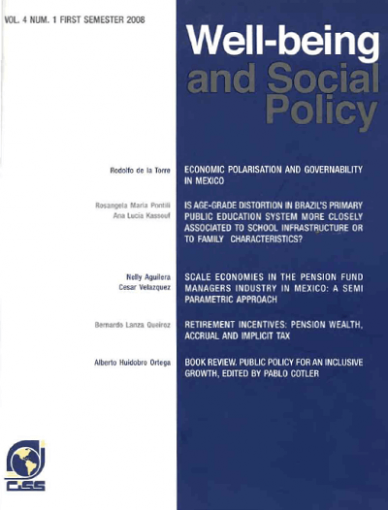
|
|
|
|

|
|
Introduction of basic accounts in Mexico to address the issue of access to the banking system: design and expected impact
This article presents the Mexican experience with the introduction of basic transaction accounts. Basic accounts are relatively cheap simple banking products with restricted functionality targeted at social groups that have limited access to transaction accounts. In Mexico, basic payroll accounts and accounts for the general public were introduced. By law, these products must be offered by all...
|
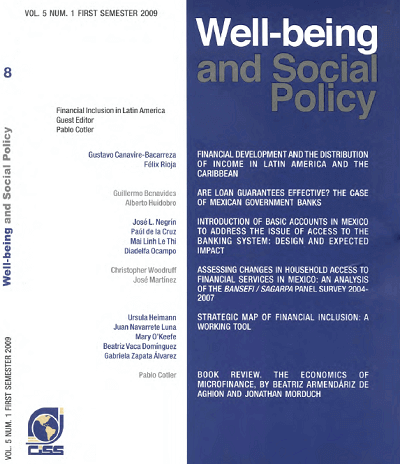
|
|
|
|

|
|
Natural disasters and poverty in Latin America: welfare impacts and social protection solutions
The Inter-American Conference on Social Security (CISS) and the United Nations Development Programme (UNDP) Office in Mexico jointly organized the conference “Natural Disasters in Latin America: Welfare Impacts and Social Protection Solutions” held in Mexico City in January 2010. The main objectives of the conference were to improve the understanding of (i) how natural disasters affect...
|
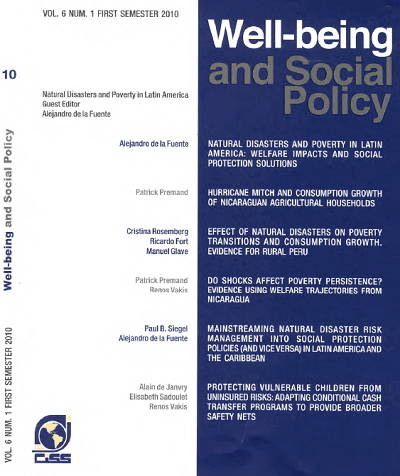
|
|
|
|

|
|
Mainstreaming natural disaster risk management into social protection policies (and vice versa) in Latina America and the Caribbean
This paper presents and applies the social risk management (SRM) conceptual framework to examine links between disaster risk, hazards, vulnerability, risk management, and social protection (SP). The paper makes the case that it is important to mainstream social protection policies into the disaster risk management (DRM) agenda and, vice versa as a means to improve household and community...
|
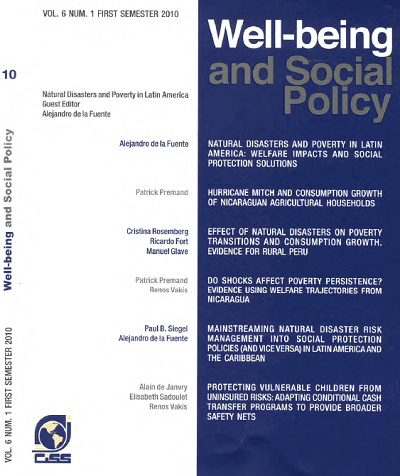
|
|
|
|

|
|
Protecting vulnerable children from uninsured risks: adapting conditional cash transfer programs to provide broader safety nets
Conditional cash transfer (CCT) programs have proved to be effective in inducing chronic poor households to invest in the human capital of their children while helping reduce poverty. They have also protected child human capital from the shocks that affect these households. In this paper, we argue that many non-poor households exposed to uninsured shocks have to use children as risk coping...
|
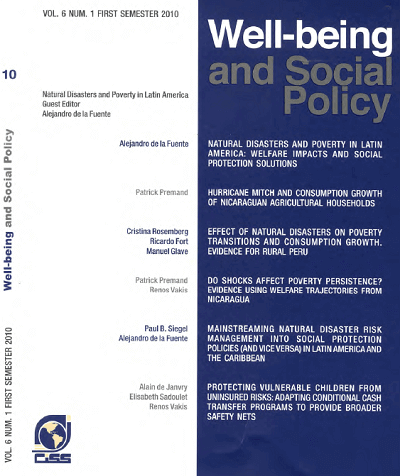
|
|
|
|

|
|
The effect of the perception of violence on social capital in Mexico
Increasing levels of violence in Mexico, which have the potential to damage the very fabric of 1 society, as well as impact key economic variables, led us to analyze the effect that changes in the perception of violence had on social capital fluctuations (including associative capital) between 2006 and 2011. This was a period in which an anti-violence and anti-organized crime policy was launched...
|
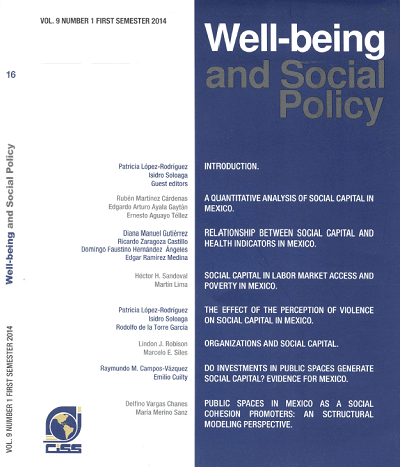
|
|
|
|
|